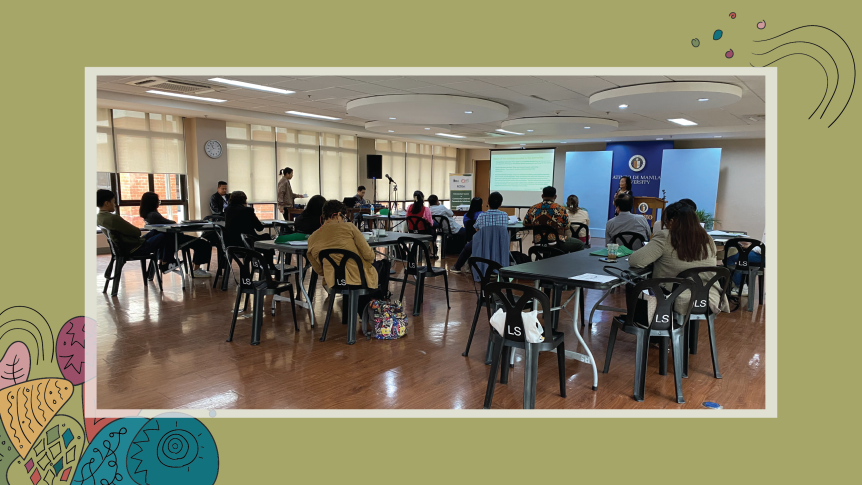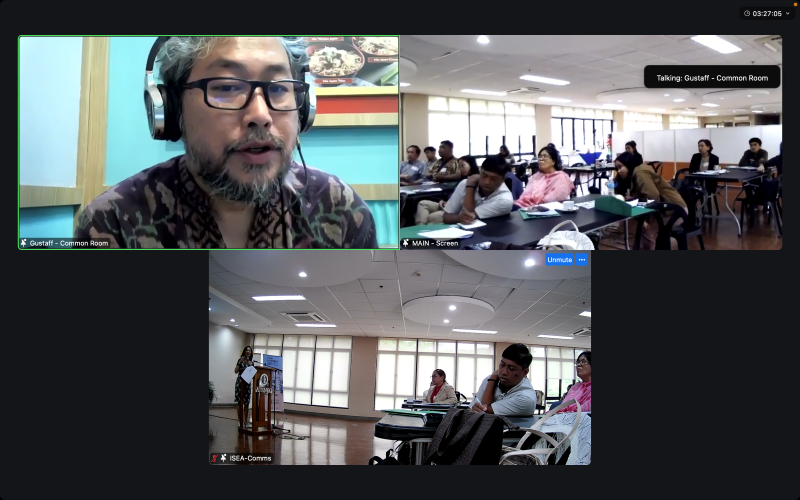
The digital divide remains a challenge in Asia and the Pacific, with connectivity gaps existing between and within countries, and separating urban and rural areas. This has been confirmed by recent research focused on the community-centred connectivity initiatives (CCCIs) in the region. Amid these persistent disparities, affecting in particular poor and marginalised communities, new strategies are taking shape, arising from collaborative efforts of organisations committed to sustainable development.
One such effort is from APC member Institute for Social Entrepreneurship in Asia (ISEA), which has identified a promising synergy between social enterprises and CCCIs to provide sustainable access alternatives, while enabling their social impact. To develop this vision they head up a project for “Developing a course on community innovations: Linking community-centered connectivity initiatives to social enterprise”. Supported by the Association for Progressive Communications (APC) through an advocacy and institutional strengthening grant in 2024, the project aims to review and enhance the impact of these initiatives by strengthening their sustainability, scalability and impact.
In February this year, a pilot workshop brought together different stakeholders from the region to focus on the topic – a milestone in building a community of practice among countries in the region to exchange experiences, promote mutual support, and join forces in advocating for policies and regulations that support these initiatives locally.
A hands-on approach: From theory to practice
Founded in 2008, ISEA is a learning and action network that supports social enterprises and resource institutions across several Asian countries, devoted to “catalysing knowledge creation, capacity development and movement building to mainstream social entrepreneurship, promoting gender equality, women’s economic empowerment, and sustainable poverty reduction,” as defined by their mission.
It was in 2021 that ISEA and APC partnered in an orientation course on social entrepreneurship and financial management with the objective of “sharing understanding of social entrepreneurship concepts and tools.” This innovative initiative proposes a new framework that enhances the social impact of both local enterprises and CCCIs. In this synergy, ISEA have been playing a pivotal role by coordinating the Asia regional work of the Local Networks initiative, led by APC and Rhizomatica, together with grassroots communities and support organisations across Asia, Africa and Latin America and the Caribbean.
As part of their efforts to promote sustainable development in line with this goal, ISEA recently led the design of and coordinated a pilot introductory course on CCCIs and social enterprises, using “Model building of community networks linked to social enterprise and local economic development”, a project developed in 2022 with the APNIC Foundation, as a reference.
“This model building initiative was meant to explore how CCCIs embedded within existing social enterprise ecosystems bring out meaningful connectivity and in the process address issues of social impact and financial sustainability that are becoming major concerns of community-centred connectivity initiatives as a whole,” said Gomer Padong, project lead.
The pilot course launched in February 2025, bringing together a diverse group of participants, from leaders of non-profit organisations to academics, government officials and social entrepreneurs. These complementary backgrounds enriched discussions, reflecting the multifaceted challenges and opportunities for connectivity as key for digital inclusion and social, economic and cultural impact for communities. Underscoring the critical role of women's leadership in digital inclusion efforts, the call resulted in 62% participation by women.
With a deep focus on concepts, but far from being a purely academic exercise, the course bridges theory and practical proposals. By integrating real-life case studies from Asian CCCIs, the course provides actionable insights for the participants, helping them to see their initiatives through the dual lenses of social enterprise and digital inclusion. Drawing on recently launched publications of the principles and typologies of CCCIs, they provide a robust framework for understanding the social mission and operational characteristics of such initiatives.
Widening to a regional perspective
The course presented experiences developing in different countries of the region. In one session, Dr. Marie Lisa Dacanay from ISEA shared the key findings of a social impact study on two CCCIs in Asia: Kasepuhan Ciptagelar and Pathardi. The experience from the first initiative, in West Java, Indonesia, was also presented by Gustaff Iskandar from the Common Room Networks Foundation, another APC member. Together, they provided an overview of strategies for stakeholder engagement and capacity building, celebrated by participants in the course evaluation.

Gustaff Iskandar from Common Room shared the experience of the Kasepuhan Ciptagelar initiative.
From the Philippines, two case studies illustrated how connectivity can be leveraged to improve the lives of users, with social enterprises playing a pivotal role. Both the Philippine Coffee Alliance, Inc. from the coffee sub-sector and the Philippine Rural Reconstruction Movement from the organic vegetable value chain now provide connectivity for their communities, while using internet access to expand sales of their products.
A second panel explored models from Bangladesh and China: the Foundation for Architecture and Community Equity, working with a crafts value chain in Bangladesh, empowering women artisans to become suppliers to a fair trade organisation; and Sources for Action in China, working with agro-eco-cultural tourism.
The initiatives’ sustainability remained a central theme through all the conversations, emphasising the adaptability of CCCIs and social enterprises to different contexts. “The discussions we held will help us implement the project effectively for the community. Sharing experiences from other countries is inspiring, showcasing the hard work to provide connectivity in underserved areas,” said one participant.
Learning and reflections: Strengthening impact
The sessions facilitated rich exchanges on how social enterprise models could offer sustainable pathways for CCCIs – whether at their inception or during scale-up phases. This perspective not only showcased CCCIs’ potential to drive digital inclusion, but also highlighted their alignment with broader goals such as equitable economic opportunity and community resilience. One participant said that the course helped her recognise her own organisation’s work as a social enterprise, providing a new framework for its sustainability and growth.
“One of the objectives of the course is to generate interest and accelerate CCCIs and social enterprise interventions,” noted Padong. “The course was also proposed as a platform to amplify advocacy for policies that nurture community-centred connectivity initiatives and social enterprises, ensuring their voices resonate in national and international arenas.”
To sustain momentum, ISEA plans structured follow-up activities, including webinars, workshops, online forums and resource sharing – all designed to foster a vibrant community of practice in the region. “We are further developing the learning materials after the pilot run. We are planning a second iteration, thinking of offering this on a modular basis and opening it to a more regional participation,” added Padong.
Some achievements are already being celebrated by ISEA. The recent formation of a community of practice in the Philippines, in particular, marks a significant step forward, as it unites practitioners, researchers and policy makers around shared goals.
The pilot course has also strengthened advocacy efforts for less complex policies and regulations for CCCIs, with participants eager to push for bills like the Konektadong Pinoy Bill in the Philippines. This bill facilitates digital inclusion through community-led approaches, simplifying the licensing process for internet network and service providers, in this way addressing the needs of underserved communities in the Philippines.
“These opportunities ensure that the pilot course is not just a one-time event but a stepping stone for broader, long-term initiatives that advance technological innovations for sustainable development,” concluded Padong.
This piece draws on the information shared by ISEA as part of their project “Developing a course on community innovations: Linking community-centered connectivity initiatives to social enterprise”, supported by APC's advocacy and institutional strengthening grants, adapted for the Seeding change column, which presents the experiences of APC members and partners who were recipients of funding through grants and subgrants offered through APC projects and initiatives.
Did this story inspire you to plant seeds of change in your community? Share your story with us at communications@apc.org